Busts of Beethoven and Mozart watch over Michael Baron in his second- floor office in FGCU’s Music Building. Franz Liszt’s hazel eyes gaze over the composer’s shoulder from a large print on a wall the Romantic-era rock star shares with framed copies of masterwork scores by other classical music icons. “I’m surrounded by the great masters every day and by rising young musicians who are so talented and eager to learn and get better,” Baron marvels. “It’s a wonderful place to be.”
His current and former proteges say the same about Baron’s piano studio, a carefully curated and cared-for collection of gifted musicians who have been achieving accolades in competition and advancing to elite graduate programs for 15 years now. This year alone, one of his current students won a state competition FGCU has dominated year after year against bigger and longer-established schools. Three others swept the top awards last fall in the Parnassus International Piano Competition for Caribbean and Central and South American pianists.
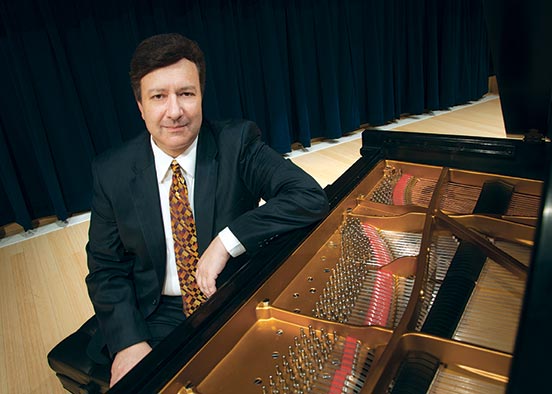
Undergraduate success is a just a prelude for some high-achieving alumni of the program, which Baron developed in 2006 as one of the three faculty founders of the Bower School of Music (“& the Arts” was added to the name just a few years ago). Priscila Navarro, whose 2013 solo recital at New York’s Carnegie Hall helped put FGCU on the classical music map, recently completed her doctorate at the University of Miami; she continues to win international competitions and has scaled such heights that she’s now being invited to judge some of those same events. Last March, she returned to Carnegie Hall to perform a program of piano duets with Baron, selections from an album of French music they recorded together last fall at FGCU.
“I’m proud that we’re pulling above our weight in the piano area,” Baron says. “We’re surrounded by much, much bigger schools and we seem to be doing a lot more. The trajectory has been quite extraordinary.”
The next chapter
As the Bower School of Music & the Arts looks to chart its next stage of donor-supported growth that potentially includes graduate programs and new facilities, Baron and his students, alumni and supporters reflected on keys to the piano program’s success. Recurring themes: Baron’s exceptional ear for talent and his dedication to recruiting and nurturing promising young artists; a school culture that encourages hard work, collaboration and career preparation; strong donor support that ensures top-quality Steinway instruments, life- changing scholarships and opportunities to travel for performance and competition.
South Korean native Hyae-jin Hwang, first met Baron when she was a high school exchange student in Colorado and he was a tenured associate professor at Colorado Mesa University in Grand Junction. She studied with him until she had to return home, but a few years later Baron reached out and encouraged her to study with him again in his then-new role as Myra and Van Williams Distinguished Professor of Music and head of keyboard studies at FGCU.
“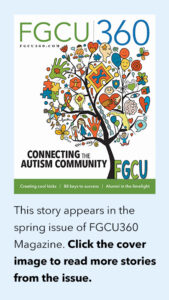 Dr. Baron guided me to experience many of the different paths a pianist could possibly take and to be connected with more people outside of school to extend my perspective and network,” says Hwang, who’s now on the piano faculty at Southern Methodist University in Dallas. “Through the experiences I had during my time at FGCU, I became a more experienced and versatile performer. This not only helped me to make a successful transition to my graduate school but also built my lifelong skills.
Dr. Baron guided me to experience many of the different paths a pianist could possibly take and to be connected with more people outside of school to extend my perspective and network,” says Hwang, who’s now on the piano faculty at Southern Methodist University in Dallas. “Through the experiences I had during my time at FGCU, I became a more experienced and versatile performer. This not only helped me to make a successful transition to my graduate school but also built my lifelong skills.
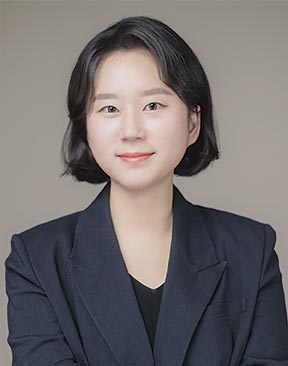
Dallas. Photo submitted.
Now that the student has become the teacher, Hwang says she tries to emulate Baron in the way she connects with and cares for his pupils, many of whom come from humble backgrounds halfway across the world.
One of his current undergraduates, junior Michelle Wijaya, became FGCU’s first student from Indonesia after sending Baron an audition video. In addition to helping her adapt to a new country and way of living as a college student in America, he connected her with financial assistance that was critical to her ability to study abroad. She has attended FGCU with support from the Marc and Babette Weksler Music Scholarship among others.
“He cares about each and every one of us, and not only in matters of the piano,” says Wijaya, who this year won first place at the state level of the annual Music Teachers National Association competition, continuing a track record of FGCU domination in the contest for pianists up to 26 years old. “He gives honest feedback. I’ve known some teachers who are too nice and some who are too harsh. He’s in between, and I like that.”
“Chill” is how the 20-year-old described the harmonious vibe among her peers, in contrast to the cutthroat competitive culture and music-is-everything mindset of some conservatories. Performance majors don’t just learn the challenging repertoire of a concert pianist. Outside of their weekly lessons and hours of practicing, they are coached in behind-the-scenes concerns such as wardrobe choices, stress management and interviewing, and also encouraged to provide piano accompaniment to other Bower instrumentalists. Those on the teaching track also tutor students from area schools.
“I feel tremendous responsibility that my students can earn a living,” Baron says. “If they’re going to teach in the public school system, they’d better be good. They’re not just going to be playing Carnegie Hall or winning international competitions.”
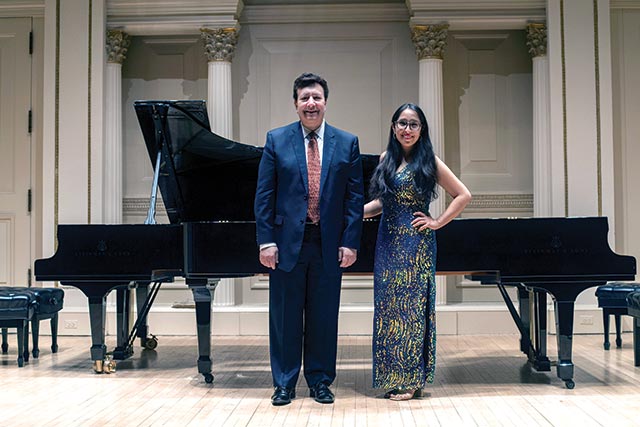
Her classmates take their keyboard studies seriously, Wijaya says, but also enjoy the freedom to explore other academic and personal interests. With its international demographic, the 14-16 students in the limited-access piano program each year gain familiarity with diverse cultures and experiences that broaden their worldview — an asset whether they aim for a concert career or a teaching position.
As the saying goes, music is an international language. Baron’s own studies and performances are grounded in Europe and Asia as well as the United States; he earned his doctorate in piano performance from The Ohio State University and studied extensively in Italy. In addition to teaching and judging competitions in person and online, he performs more than 40 concerts a year around the world, appearances usually accompanied by master classes with promising young pianists that often yield recruiting prospects.
Baron has tuned his pitch successfully but not exclusively to South America. Victoria Paulino de Souza, who led FGCU’s clean sweep in last fall’s Parnassus International Piano Competition, hails from Brazil; her Peruvian classmates Jair Aaron Zacarias Malqui and Arturo Manuel Fernandez placed second and third in the contest.
Baron’s highest-achieving alum and his first pupil from South America was Peruvian Navarro, whom he discovered through networking at a summer music festival. A 15-year-old student at the National Conservatory of Music in Lima at the time, Navarro’s recordings impressed him enough to get her a full scholarship to FGCU.
“I immediately recognized the tremendous potential she had,” Baron recalls. “She turned out to be, as everyone knows, a phenomenal talent.”
Coming full circle
Longtime Bower supporter Myra Williams has seen that happen time and again, and it’s one of the reasons she knows her gifts for scholarships, programming and other vital needs are benefiting the school and its students. A former piano student herself, she’s even had a few sessions with the maestro.
“He’s very shrewd in his judgment of students. Sometimes he selects students who don’t have great preparation, but they bloom under him,” Williams says. “He goes out of his way to nurture them. When COVID hit, he was driving students to Miami to get flights to go back to their home countries if they could, or finding ways for them to stay here. He couldn’t be a more caring professor.”
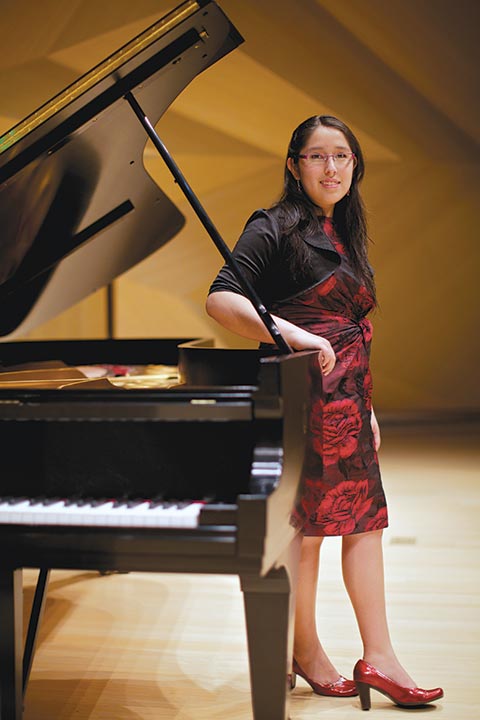
Or a better role model for generations of aspiring Eagle artists. Now 27, Navarro sees herself as an encouraging beacon for other young pianists to follow to FGCU and aim even higher than she did.
The mentor-apprentice model that she and other students have experienced with Baron is grounded in hundreds of years of musical tradition and is an important legacy for the program, according to Navarro.
“It’s almost miraculous for someone from my background and social-economic status to have come as far as I did,” she says in an interview from Miami, where she lives and teaches while continuing to travel for concerts and contests like the Leeds International Piano Competition in England, where she placed in the top 10 last year.
“It’s one of the most historically important competitions, with people from the top schools in London, Paris, Vienna — the top pianists of this generation. Here’s me, who went to FGCU, a young school with a small music faculty. I’m really proud and thankful that I’ve been able to have this kind of unique experience.”
In what amounts to the equivalent of a musical coda, a concluding passage that echoes a previous theme, the student is now emulating the master. As artistic director of the Parnassus Music Society in Peru, she is helping shape the futures of other gifted Latin-American musicians. “It’s my initiative to continue in my way what Dr. Baron does,” Navarro says. “It’s important not only to practice and work as hard as you can, but to have opportunities to showcase your talents and meet exceptional piano teachers throughout the world.”
Baron couldn’t be more proud.
“I’m getting old enough now that things are coming full circle,” he says. “My students are now becoming professors and helping the next group of students. This historical cycle continues in a natural manner, which brings me great satisfaction.”
